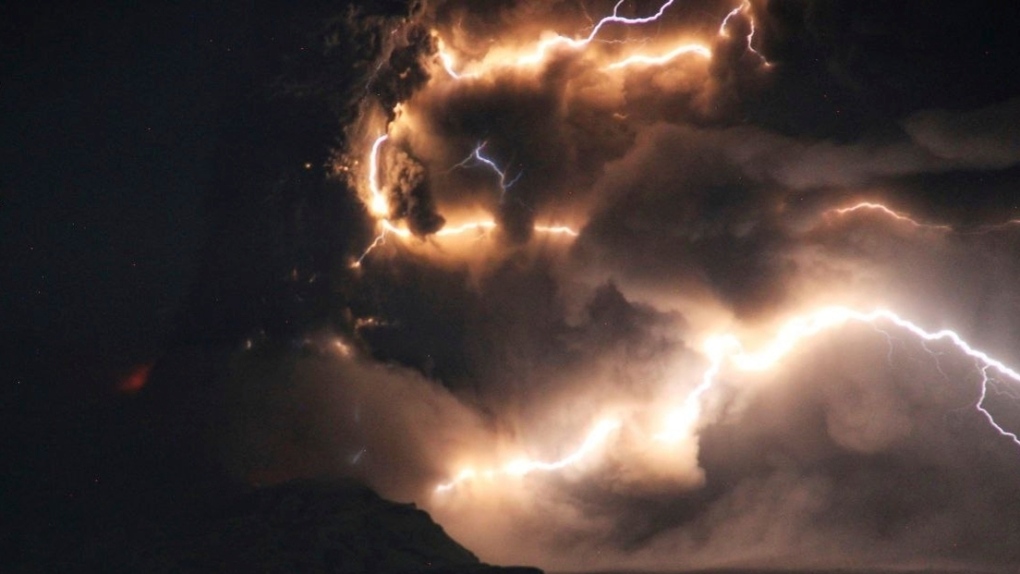WASHINGTON - The United States played a crucial role in assisting Israel in thwarting Iran's aerial attack, marking the first direct military assault by Iran on Israel. The U.S.support led to the downing of dozens of drones and missiles launched by Iran, with 99 per cent of the inbound weapons intercepted without causing significant damage. This intervention prevented an uncontrollable escalation in the Middle East, demonstrating the U.S.'s commitment to regional stability. President Joe Biden convened the leaders of the Group of Seven countries to coordinate a global response to the Iranian attack and prevent further escalation. The U.S. cooperation with Israel in defense operations highlighted the strategic importance of American support in the region. Despite the high interception rate, U.S. officials emphasized Iran's intent to cause casualties and destroy targets, underscoring the gravity of the situation. In a statement, Biden assured Israeli Prime Minister Benjamin Netanyahu that the U.S. would not participate in offensive actions against Iran, emphasizing the need for strategic and careful consideration to avoid escalating tensions. The U.S. commitment to Israel's defense was reaffirmed during the crisis, showcasing the strength of the bilateral relationship between the two countries. The U.S. and its allies had prepared for the possibility of an Iranian attack, but the scale and intensity of the assault exceeded initial expectations. At one point, over 100 ballistic missiles were in the air simultaneously, posing a significant threat to Israel.
Biden and senior officials closely monitored the situation in real-time, with a sense of relief when the missile defense systems successfully intercepted the incoming threats. American military assets, including aircraft and ballistic missile defense systems, were swiftly deployed to support Israel's defense efforts. The U.S. played a critical role in shooting down drones and cruise missiles, as well as intercepting ballistic missiles from Iran. The coordination between U.S. and Israeli forces demonstrated the effectiveness of their partnership in countering external threats and protecting regional security. Following the incident, Biden emphasized the need for Israel to exercise restraint and avoid further escalation, urging Netanyahu to claim victory for Israel's defense capabilities. The diplomatic efforts aimed to prevent a larger retaliatory strike against Iran and maintain stability in the region. Biden's communication with regional leaders, including Jordan's King Abdullah II, underscored the importance of de-escalation and cooperation to address the crisis effectively. The G7 leaders issued a joint statement condemning Iran's direct attack and expressing full solidarity with Israel. They reiterated their commitment to Israel's security and emphasized the need to prevent further destabilization in the region. Discussions among the G7 countries included potential measures to hold Iran accountable, such as designating the Revolutionary Guard Corps as a terrorist organization and imposing additional sanctions on Tehran. The ongoing conflict between Israel and Hamas in Gaza was also addressed in the G7 statement, with a focus on achieving a sustainable ceasefire and delivering humanitarian assistance to Palestinians in need. The leaders emphasized the importance of cooperation to end the crisis in Gaza and ensure the release of hostages held by Hamas. The international community's support for peace efforts in the region was underscored during the discussions. At the United Nations Security Council meeting, the U.S. reiterated its unwavering support for Israel's defense and called for immediate condemnation of the Iranian attack. The U.S. pledged to explore additional measures to hold Iran accountable at the UN, signaling a commitment to address the regional security challenges through multilateral cooperation. The U.S. and Israel had been on high alert for an Iranian retaliation following a suspected Israeli strike on an Iranian consular building in Syria. The escalation of tensions underscored the fragile dynamics in the region and the need for diplomatic engagement to prevent further violence. Amidst the escalating crisis, the U.S. emphasized the importance of dialogue and cooperation to address the root causes of the conflict and promote lasting peace in the Middle East. In conclusion, the U.S.'s role in aiding Israel during the Iranian attack highlighted the strategic partnership between the two countries and the shared commitment to regional security. The coordinated efforts to thwart the assault demonstrated the capabilities of both nations in responding to external threats and maintaining stability in the region. Moving forward, continued cooperation and diplomatic engagement will be essential to de-escalate tensions, address the humanitarian crisis, and advance lasting peace in the Middle East.United States seeks to prevent further escalation in the Middle East as Biden urges Israel to demonstrate restraint.
 5 months ago
2600
5 months ago
2600
- Homepage
- World News
- United States seeks to prevent further escalation in the Middle East as Biden urges Israel to demonstrate restraint.
Related
Russia experiences volcanic eruption following 7.0 magnitude...
1 month ago
2057
China Metro Stations Buzz with Personalized Ads as Operators...
1 month ago
2014
Accused Mastermind of 9/11 Attacks, Khalid Sheikh Mohammed, ...
1 month ago
2301
Trending in United States of America
Popular
Nokia Reaches 5G Patent Agreement with Vivo After Lengthy Le...
7 months ago
26048
Apple's Upcoming Tablet Lineup: iPad Air to Introduce Two Si...
9 months ago
25976
Xiaomi's First Electric Car, the SU7 Sedan, Enters the EV Ma...
8 months ago
25364
The European Parliament's Bold Move to Combat Smartphone Add...
9 months ago
25312
Unveiling ChatGPT's New 'Memory' Feature Revolutionizing Use...
7 months ago
25212
© OriginSources 2024. All rights are reserved








 English (US)
English (US)